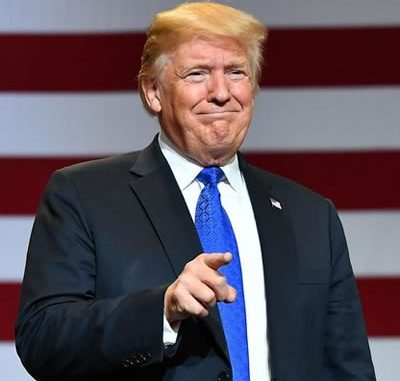
By Dapo Falade, with agency report
Justice Tanya Chutkan of the District Court, Washington, on Monday, put on hold what could have been the first federal execution in the United States of America (USA) in 17 years as she ordered against four executions scheduled for July and August.
The order by Justice Chutkan against the first federal execution in about 20 years, scheduled for later today, have thwarted, albeit temporarily, the desire of the President Donald Trump administration to revive capital punishment at the federal level in the country.
As reported by Reuters, the decision of the judge was in order to allow for the continuation of the suit filed by the condemned men, challenging a new lethal injection protocol announced in 2019.
Her order came down less than seven hours before Daniel Lewis Lee was due to be put to death at 4 p.m today, using lethal injections of pentobarbital, a powerful barbiturate, at the Justice Department’s execution chamber in Terre Haute, Indiana.
According to the report, correction officers stood at the entrance to Federal Correctional Institution, waiting for Lee, who was sentenced to death for his role in the murders of three members of an Arkansas family, including an 8-year-old child, in 1996.
However, Justice Chutkan wrote in her order, on Monday, “The scientific evidence before the court overwhelmingly indicates that the 2019 Protocol is very likely to cause plaintiffs extreme pain and needless suffering during their executions.”
She further said the inmates were likely to succeed in their challenge to the protocol on the grounds that it breached a constitutional ban on “cruel and unusual” punishments, just as the Justice Department told the court thay it would appeal the injunction.
“The government has been trying to plow forward with these executions, despite many unanswered questions about the legality of its new execution protocol,” Shawn Nolan, one of the public defenders representing the death row inmates in their lawsuits, said in a statement.
Efforts to resume capital punishment at the federal level in the US were reviver within a few months of President Trump’s inauguration in 2017, ending a de facto moratorium that began under his predecessor, Barack Obama, due to problems of getting execution drugs, just as long-running legal challenges to lethal injections played out at federal courts.
The Justice Department had scheduled two more executions for later in the week and a fourth one in August, of Wesley Purkey, Dustin Honken and Keith Nelson, all convicted of murdering children.
The coronavirus pandemic has prevented some of the lawyers of inmates on death row from visiting their clients, as one employee involved in the executions tested positive for COVID-19, the Justice Department said over the weekend.
Federal executions are rare occurrences in the US, while Texas, Missouri and some other states have executed multiple condemned inmates: three of such since 1963, from 2001 to 2003, including the 2001 execution of Oklahoma City bomber, Timothy McVeigh.
There are currently 62 people on federal death row in Terre Haute, even as opposition to death penalty has grown, although 54 per cent of Americans said they supported it for people convicted of murder, according to a 2018 survey by the Pew Research Center.
In announcing the planned resumption of executions, Attorney General William Barr said in 2019: “We owe it to the victims and their families to carry forward the sentence imposed by our justice system.”
A European Union (EU) ban on selling drugs for use in executions or torture has however led to pharmaceutical companies refusing to sell such drugs to US prison systems.
The Justice Department reportedly spent much of 2018 and 2019 building a secret supply chain of private companies to make and test its drug of choice, pentobarbital, which replaced the three-drug protocol used in previous executions.
Some of the companies involved said they were not aware they were testing execution drugs, a Reuters investigation found last week, just as the Justice Department has commissioned a private pharmacy to make the drug in Texas and other states.

Leave a Reply